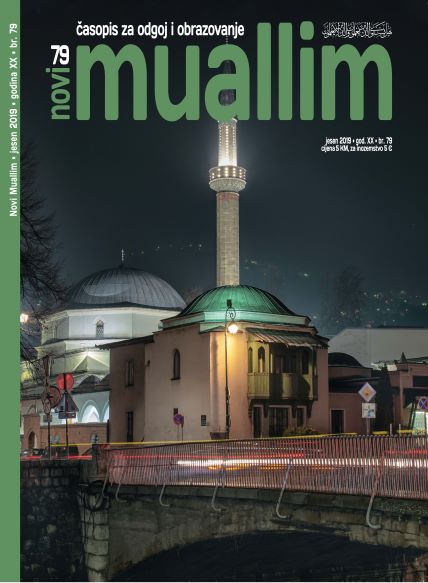THE EFFECTS OF WORKING IN GROUPS IN TEACHING THE CLASS OF THE ISLAMIC RELIGIOUS STUDIES IN PRIMARY SCHOOLS IN SARAJEVO
DOI:
https://doi.org/10.26340/muallim.v20i79.1732Keywords:
frontal form of teaching, experimental group, control group, the effects of working in groups, group study as a teaching formAbstract
UDK 371.311.4:[373.3:28(497.6)
The study of effects of cooperative learning and group work in teaching the class of Islamic religious studies is one of the essential issues of theory and practice of teaching. In the research that we present here we examine and compare the effects of group form of teaching and frontal form respectively. With help of experiments we observed the isolated impact of both, group and frontal form of teaching, upon following variables: interaction among the students, independent individual work of students, degree of actual learning, and motivation and sense of fulfilment in students. Students of 7th and 8th grade of Primary School “Mula Mustafa Bašeskija” participated in this survey divided into two groups: experimental, where the teaching content was studied in groups and the control group wherein the same teaching content was taught in the frontal form of teaching. At the end of the class respondents showed certain degree of agreement with statements offered in the questionnaire and answered the questions related to the teaching content. The results show that students of the experimental group were more independent in their approach as related to the students of the other, control group. Students who worked in groups also exhibited higher degree of satisfaction and motivation when compared to students who studied the teaching content in the frontal form of teaching. Regarding the other two variables, interaction among students and the degree of actual learning of the content, the difference there is not statistically significant. Thus we established that the group work as form of teaching has its advantages and we conclude that suggestion that advocates continuous and systematic use of this form of teaching is pedagogically justifiable. Besides methodological advantages that were hereby confirmed, this form of teaching also helps develop the sense of responsibility, group belonging, critical opinion and creativity in students.
Downloads
Published
How to Cite
Issue
Section
License
Naknada:
a. Časopis ne naplaćuje naknadu za obradu članaka (APC) i naknadu za podnošenje članaka.
Autori koji objavljuju u ovom časopisu pristaju na sljedeće uvijete:
- Autori zadržavaju autorska prava i pružaju časopisu pravo prvog objavljivanja, pri čemu će rad jednu godinu po objavljivanju biti podložan licenci Creative Commons imenovanje koja omogućuje drugima da dijele rad uz uvijet navođenja autorstva i izvornog objavljivanja u ovom časopisu.
- Autori mogu izraditi zasebne, ugovorne aranžmane za ne-ekskluzivnu distribuciju rada objavljenog u časopisu (npr. postavljanje u institucionalni repozitorij ili objavljivanje u knjizi), uz navođenje da je rad izvorno objavljen u ovom časopisu.


